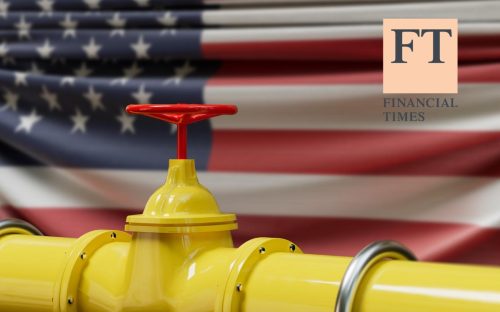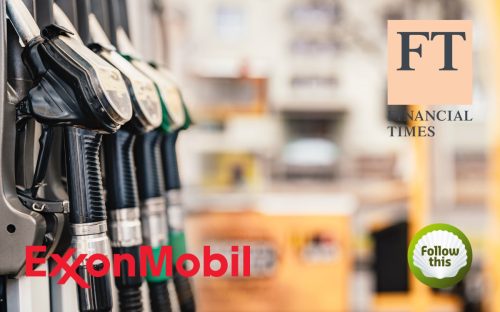Highest vote in favour of a Follow This proposal which requests emission reductions in line with the Paris Climate Agreement (in the US, in 2021 Follow This only requested emissions reductions)
- Voting signals investors’ impatience at Big Oil’s refusal to curb emissions by 2030
- The company will need to respond to the significant minority of shareholders who see through the smokescreen and demand true Paris alignment
- Climate proposal requests emissions reductions in line with the Paris Climate Agreement for all emissions (Scope 1, 2, and 3)
- In 2016, when the first Follow This climate resolution came to vote at the AGM of Shell, it received a mere 2.7% of the votes
A significant minority of 39% of shareholders in ConocoPhillips voted in favour of the climate proposal filed by Follow This, the company said during the annual shareholders’ meeting held today. The proposal requested Paris-aligned emission reduction targets. This is the highest vote for a Paris-consistent emissions proposal filed by Follow This so far #.
“A significant 39% of shareholders urges ConocoPhillips to set meaningful targets for all emissions (Scope 1, 2 and 3). They were not appeased by the tiny step ConocoPhillips took (by setting Scope 1 and 2 targets) since last year’s AGM,” responds Mark van Baal of Follow This, the activist shareholder group which filed the proposal.
“Without a target to decrease the emissions of its products (Scope 3) Conoco is further from Paris-alignment than any oil major, except Exxon.”
“With only operational emission reduction targets, Conoco is like a tobacco firm that promises to smoke less while continuing to sell cigarettes.”
# explanation highest vote:
- In 2021, a different climate proposal (to make sure it passed the SEC) requesting emission reductions targets for all emissions received 58% of the votes; Conoco responded by setting operational emission reduction targets (Scope 1 and 2), but did not address the emissions of their products, so called Scope 3 emissions, around 90% of the total emissions of an oil major. Contrary to Phillips66 and Chevron who also received a majority vote for a climate resolution resulting in setting an (insufficient) Scope 3 target previous year.
- At Equinor, in 2021, Follow This received 39% of non-government votes (5.6% of total votes since the government consistently votes with management)
- At Valero, 42% voted for a similar climate proposal filed by Mercy Investment Services
According to the CA100+ benchmark, neither Conoco’s targets nor capital expenditure plans are Paris-aligned.
We have the following explanations for the decrease in votes:
- A minority of investors insists on Paris-consistent targets and a majority settles for company-issued targets. In 2021, Conoco had no targets at all.
- In 2022, the proposals requests more than in 2021; in 2021, proposals requested emissions reduction targets. In 2022, proposals request Paris-consistent emissions reduction targets. Investors might shy away from incorporation of external metrics into company policy, in this case the Paris Climate Agreement.
- Conoco might have convinced some investors that the current energy crisis overrides the climate crisis.
- Investor base might have changed due to divestment of shareholders.
- Investors might have fallen for Conoco’s argument that as an Exploration and Production company, they “do not control” Scope 3 targets.
“To achieve the Paris Climate Agreement, every company, especially oil and gas companies, should reduce all emissions this decade. We thank the investors that voted for meaningful targets, helping to convince other investors that Big Oil can make or break the Paris Accord, and will not change without their votes.”
Read the speech by Follow This
Inconsistent voting pattern
“Apparently, shareholders who voted in favour of the Follow This climate proposal in 2021 voted against our proposal this year, despite the fact that Conoco didn’t execute last year’s climate proposal.”
Minorities drive change
“In the past, even minority support from institutional investors has proven effective in advancing Big Oil’s climate targets”. In Europe, in 2017, Shell was the first oil major to reluctantly take accountability for Scope 3 after 6% voted for the Follow This climate resolution. In early 2020, BP followed suit after 8% in 2019.”
Upcoming Climate Resolutions at Big Oil
“We urge institutional investors to vote in favour of the Climate Resolutions at the upcoming AGMs of 6 of the world’s largest oil companies to make sure that Big Oil will significantly reduce their emissions this decade to prevent the devastating consequences of climate change.”
Investors will have the opportunity in the coming weeks to show that they genuinely want to prevent devastating climate change by using their voting power. They can compel Big Oil to truly accelerate the energy transition and reduce emissions by voting in favour of our proposals at Phillips66 (11 May), Equinor (11 May), BP (12 May), Shell (24 May), Chevron (25 May) and ExxonMobil (25 May).
“A vote for the Follow This climate resolutions will send a strong signal to all oil majors that institutional investors mean business about stopping climate change. Management requires unambiguous support from shareholders to align company targets with the Paris Agreement and to invest accordingly.”










